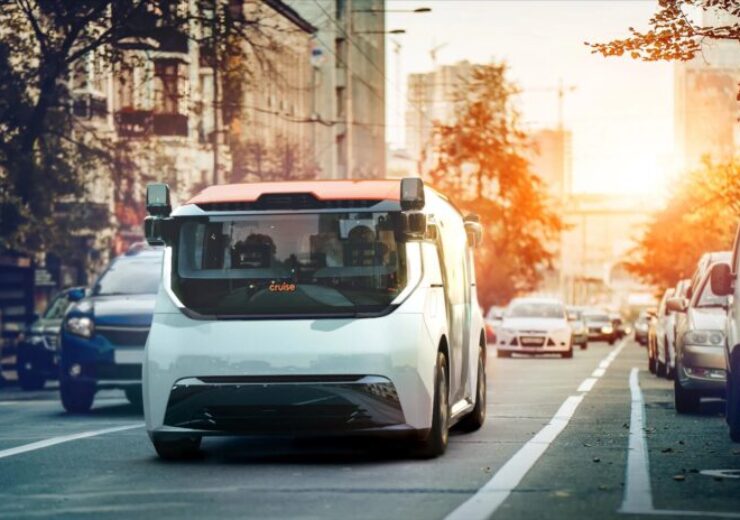The companies seek approval to start the commercial service of the Cruise Origin, a zero-emission, shared, electric vehicle that can run without a human driver

The Cruise Origin car does not depend on some human-centred features such as a steering wheel or a sun visor. (Credit: Cruise LLC)
Self-driving car start-up Cruise and General Motors (GM) have filed a petition to seek approval from the US National Highway Traffic Safety Administration (NHTSA) to build and deploy the Cruise Origin, a Level 4–5 driverless vehicle, into commercial service.
General Motors is one of the main investors of Cruise. The latter’s Cruise Origin has been designed to be a zero-emission, shared, electric vehicle that can run without a human driver.
The Cruise Origin car does not depend on certain human-centred features such as a steering wheel or a sun visor, for its safe operations.
Cruise government affairs and social impact SVP Rob Grant in a blog spot wrote: “This petition both demonstrates how the Origin achieves safety objectives of existing standards and helps enable future AV regulations.
“NHTSA has made clear in public testimony and regulatory actions, that in order to consider the development of AV standards, they first need more information from real-world AV operations.”
The petition, if approved, is expected to help in gaining learnings from the Cruise Origin, which is said to be designed to enhance overall road safety. In addition, the approval could help inform in creating new, updated regulations and standards.
The Cruise Origin self-driving car is planned to be manufactured at GM’s Michigan Factory ZERO.
Grant further wrote: “The submission of this petition signals that Cruise and GM are ready to build and deploy the Origin, here in America.
“We look forward to NHTSA’s thorough review of our petition, and stand ready to continue working closely with them to ensure the safe and responsible deployment of this technology.”
Founded in 2013, Cruise has a valuation of more than $30bn. The company has raised $9.25bn in funding to date, which includes nearly $750m from retailing major Walmart and certain institutional investors in April last year.


